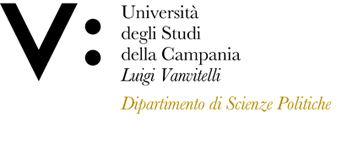Laura LAMBERTI
Insegnamento di LEGISLAZIONE DEL PATRIMONIO CULTURALE
Corso di laurea magistrale in SCIENZE E TECNICHE DELLE AMMINISTRAZIONI PUBBLICHE
SSD: IUS/10
CFU: 6,00
ORE PER UNITÀ DIDATTICA: 36,00
Periodo di Erogazione: Secondo Semestre
Italiano
| Lingua di insegnamento | ITALIANO |
| Contenuti | L’insegnamento ha ad oggetto gli ambiti del diritto (pubblico) del turismo e del diritto del patrimonio culturale al fine di fornire le conoscenze necessarie per interpretare ed applicare la legislazione del patrimonio culturale in relazione alla sua rilevanza nel settore turistico e per individuare le correlazioni tra i due contesti. |
| Testi di riferimento | C. Barbati, M, Cammelli, L. Casini, G. Piperata, G. Sciullo, Diritto del patrimonio culturale, il Mulino, Ult. ed. |
| Obiettivi formativi | 1.Conoscenza e capacità di comprensione (knowledge and understanding) |
| Prerequisiti | Nessuno |
| Metodologie didattiche | Lezioni frontali e interattive con il supporto di presentazioni in ppt esplicative degli argomenti trattati (42 ore). |
| Metodi di valutazione | Prova orale o prova scritta previa regolare prenotazione sulla piattaforma digitale d'Ateneo. Per la prova scritta è necessario dare comunicazione al docente, attraverso la posta elettronica istituzionale (Questo indirizzo email è protetto dagli spambots. È necessario abilitare JavaScript per vederlo.), almeno 5 giorni prima della data d'appello per la quale si è effettuata la prenotazione. |
| Altre informazioni | Per prepararsi all'esame, è essenziale che lo studio dei testi sia supportato dalla consultazione del Codice dei beni culturali e del paesaggio. |
| Programma del corso | Diritto pubblico del turismo: le fonti ed i principi; l’organizzazione del turismo; le imprese e le professioni turistiche; i tipi di turismo ed i beni. Diritto del patrimonio culturale: le fonti e la nozione di patrimonio culturale; le tipologie e l’individuazione dei beni culturali; l’organizzazione ed i soggetti; la tutela; la valorizzazione e la gestione; i beni paesaggistici e la loro disciplina. |
English
| Teaching language | Italian |
| Contents | The teaching relates to the areas of law (public) of tourism and cultural heritage law in order to provide the knowledge required to interpret and apply the cultural heritage legislation in relation to its importance in the tourism sector and to identify the correlations between the two contexts. |
| Textbook and course materials | C. Barbati, M, Cammelli, L. Casini, G. Piperata, G. Sciullo, Diritto del patrimonio culturale, il Mulino, Ult. ed. |
| Course objectives | 1. Knowledge and understanding. |
| Prerequisites | None |
| Teaching methods | Face-to-face and interactive lessons with the support of PowerPoint presentations explaining the topics covered (42 hours). |
| Evaluation methods | Oral or written test must be book in advance on the digital platform of the University. Students must inform the professor when they wish to take written tests, via institutional email (Questo indirizzo email è protetto dagli spambots. È necessario abilitare JavaScript per vederlo.), at least 5 days before the date of the round of exams for which the booking was made. |
| Other information | In order to prepare for the examination, it is essential that the study of texts be supported by consultation of the Cultural Heritage and Landscape Code |
| Course Syllabus | Public law of tourism: the sources and principles; the organization of tourism ; tourism businesses and professions; types of tourism and goods. |








